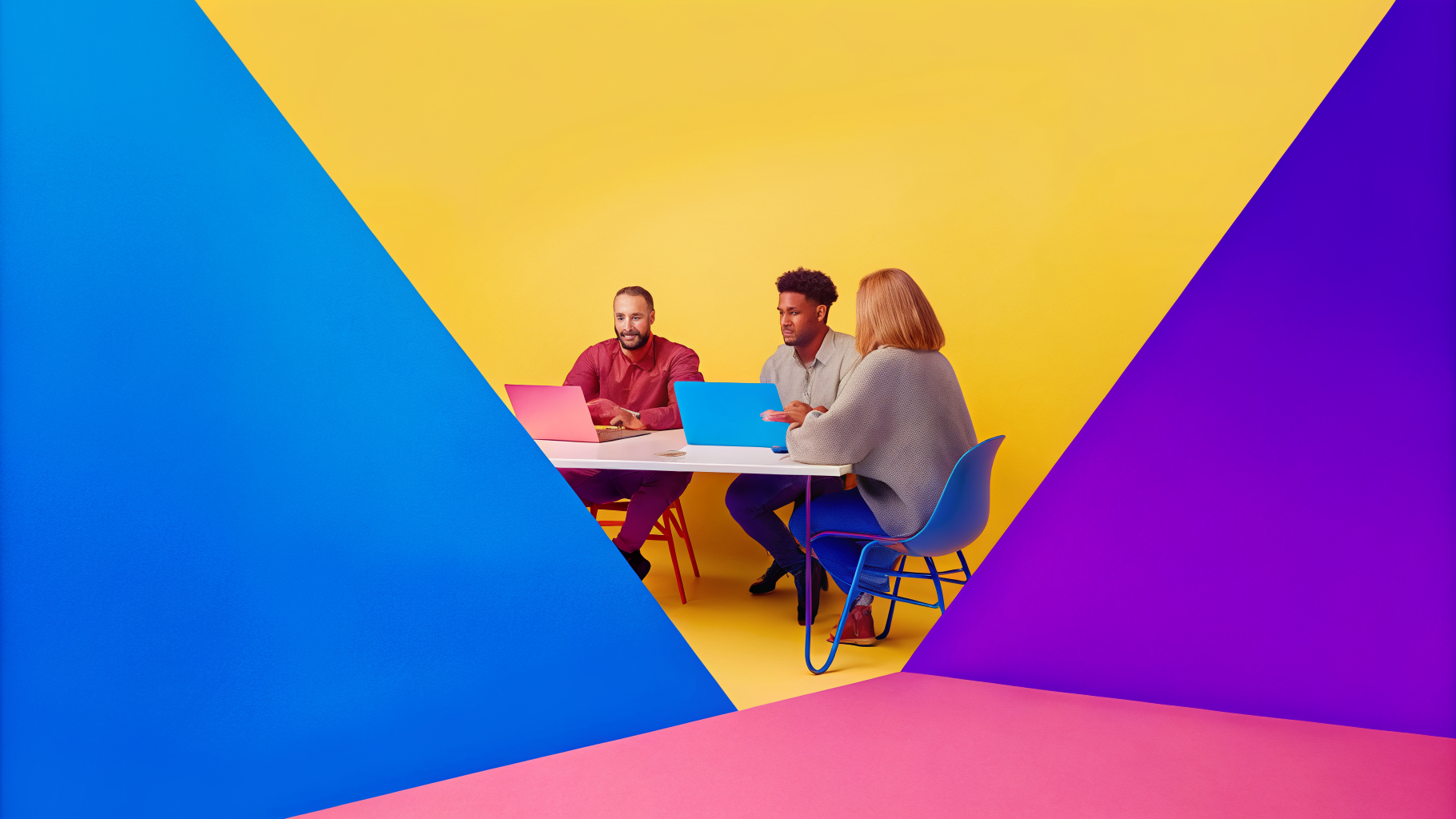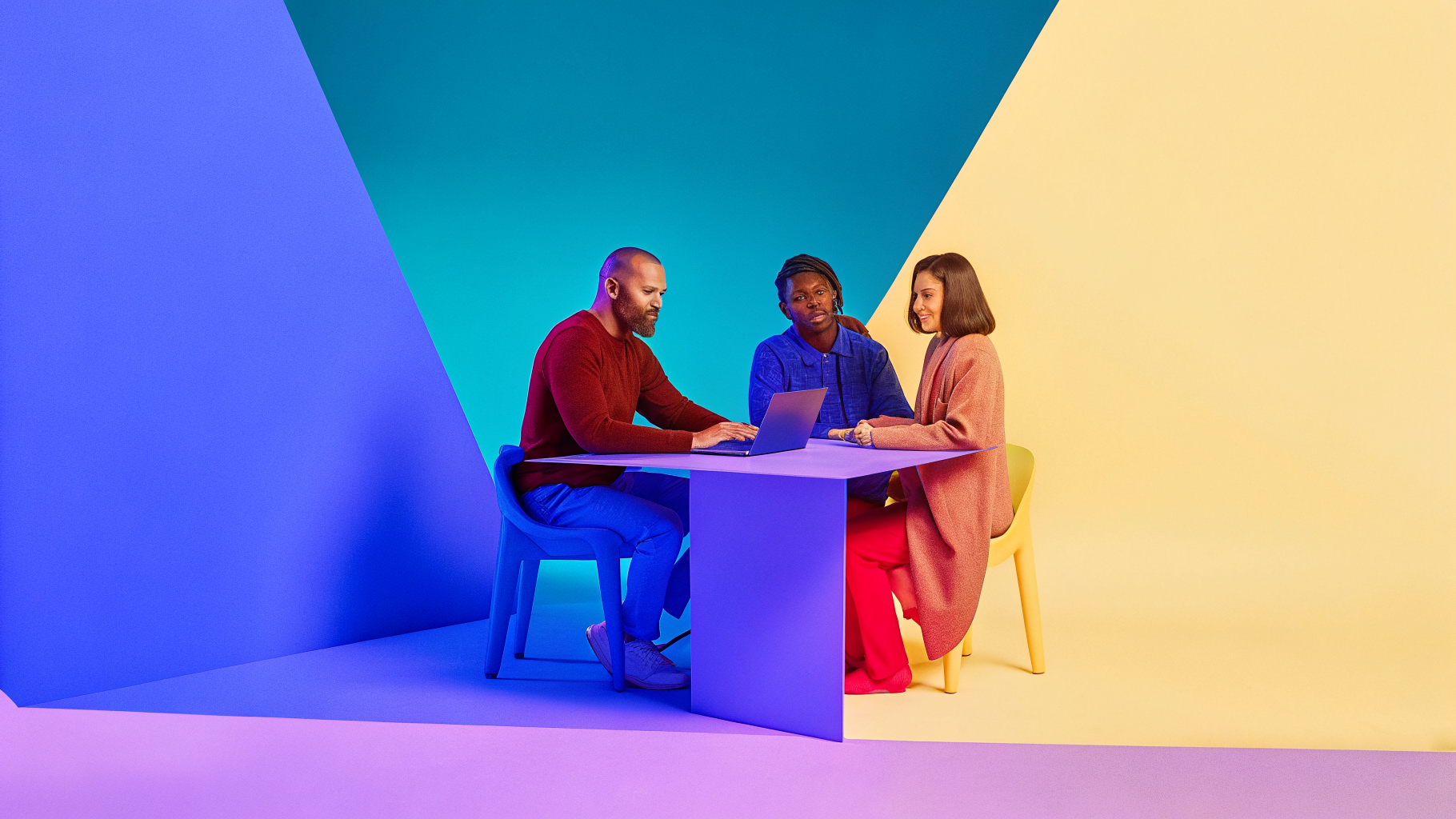
Let's be honest. You've scrolled through social media today, and some posts made you stop. Others? You barely noticed them.
What's the difference?
It's not luck. It's not even just good design. The posts that made you pause, click, or share were built on something more powerful: psychology.
The best social media creative agencies know this secret. They understand that behind every scroll, click, and share is a human brain making split-second decisions. And when you tap into how that brain works, something remarkable happens. Your engagement doesn't just improve a little. It skyrockets.
We're talking about 161% higher engagement. Not 16%. Not 61%. A full 161%.
Want to know how? Let's dive into the psychology that's changing the game for brands across America.
Your Brain Makes Decisions in 1.7 Seconds (Or Less)
Here's a scary stat: mobile users spend just 1.7 seconds looking at social media content before deciding to engage or scroll past. Desktop users get a whopping 2.5 seconds.
That's barely enough time to read this sentence.
So how do top-tier social media creative agencies capture attention in those fleeting moments? They use color psychology. Research shows that vibrant colors energize the brain and dramatically improve visual memory. Posts with bright, contrasting colors get significantly more likes than dull, monochromatic content.
Think about it. When was the last time a gray post made you stop scrolling?
A skilled social media creative agency knows that complementary colors (like red and green, or blue and orange) create visual tension that grabs eyeballs. It's not about being pretty. It's about being impossible to ignore.
Emotions Aren't Just Part of Marketing, They ARE Marketing
Here's where things get interesting.
You might think people make decisions based on facts and features. Product specs. Price comparisons. Logical analysis.
Wrong.
Emotional marketing campaigns have a 31% success rate compared to purely rational ones. Even more impressive? Digital ads that generate strong emotions are four times more effective for brand building than ones that don't.
Your customers' brains are wired to respond to emotions faster than facts. That's not a bug. It's a feature that's been millions of years in the making.
Professor Gerald Zaltman at Harvard discovered something mind-blowing: 95% of our purchasing decisions happen subconsciously. We think we're being rational, but our emotions are calling the shots.
Smart agencies use this insight to create content that hits you right in the feels. They're not manipulating you. They're speaking the language your brain already understands.
The Triple Threat: Why Emotionally Connected Customers Are Gold
Let's talk ROI. Because at the end of the day, engagement means nothing if it doesn't impact your bottom line.
Emotionally engaged customers are three times more likely to recommend a product, and five times more likely to repurchase. Think about what that means for your customer lifetime value.
But it gets better.
81% of emotionally connected customers recommend their favorite brands to friends and family while spending more themselves. You're not just getting repeat business. You're getting free marketing from your most passionate advocates.
A professional social media creative agency builds campaigns that create these emotional bonds. They know that people don't share content because it's informative. They share it because it makes them feel something worth spreading.
The Likeability Factor You Can't Afford to Ignore
USC researchers discovered something interesting about advertising effectiveness. The emotion most closely linked to increased sales isn't excitement or surprise or even happiness.
It's likeability.
When people like your brand, they buy from you. Simple as that.
But here's the challenge: data doesn't create likeability. Stories do. Personality does. Showing your humanity does.
This is why the best social media creative agency partners focus on injecting personality throughout your customer journey. They create content that feels less like an advertisement and more like a conversation with someone you actually enjoy talking to.
On Facebook, people are looking for humor, inspiration, and positivity. Not product specs. Not corporate jargon. Content that makes them smile, think, or feel hopeful about the world.
Why Gen Z and Millennials Are Your Emotional Marketing Goldmine
If you're targeting younger demographics, listen up.
58% of consumers aged 18–21 feel emotionally connected to brands. This generation doesn't just buy products. They buy into beliefs, values, and purpose-driven messaging.
They want to know what your brand stands for. What you believe in. How you're making the world better. And when you show them? They become some of your most loyal customers.
A social media creative agency that understands this demographic knows that authenticity isn't a buzzword. It's a requirement. Gen Z can spot inauthenticity from a mile away, and they'll swipe past it just as fast.
The Reciprocity Rule That Makes Followers Engage
Have you ever received a small gift and immediately felt like you owed something back? That's reciprocity, and it's hardwired into human psychology.
On social media, reciprocity works like magic. When you give value first, entertaining content, helpful tips, behind-the-scenes access, your audience feels a natural urge to give back through likes, comments, shares, and eventually, purchases.
The smartest agencies use this principle strategically. They don't lead with "Buy now!" They lead with "Here's something valuable." The sales come naturally after trust is built.
This is why influencer partnerships work so well. 82% of customers are highly likely to buy a product recommended by a micro-influencer. These smaller influencers have built reciprocal relationships with their audiences. Their recommendations carry weight because they've given value consistently.
Social Proof: The Psychological Shortcut Everyone Uses
You walk into a restaurant, and there are two options. One is packed with people. The other is empty. Which do you choose?
The packed one, obviously.
That's social proof in action. We look to others to guide our decisions, especially when we're uncertain.
76% of consumers said they were more likely to purchase from brands they feel an emotional connection with, and much of that connection comes from seeing others engage with and endorse those brands.
A savvy social media creative agency leverages social proof in multiple ways:
- Customer testimonials and reviews
- User-generated content
- Influencer partnerships
- Showcasing community engagement
- Highlighting follower counts and interaction metrics
When potential customers see others loving your brand, it removes risk from their decision-making process. You're not asking them to trust you blindly. You're showing them that thousands of others already have.
The Power of Being Everywhere (Without Actually Being Everywhere)
Neil Patel seems to be everywhere online. LinkedIn. YouTube. Blog posts. Facebook. Entrepreneur articles.
But here's the secret: he's not actually everywhere. He's just strategically visible to his target audience across the platforms they use most.
This psychological principle is called the mere-exposure effect. The more someone sees your brand, the more they like it and trust it. Familiarity breeds comfort, and comfort breeds conversions.
A professional social media creative agency creates omnichannel strategies that make your brand feel omnipresent to your specific audience. Not the whole world. Just the people who matter to your business.
The result? Your brand becomes the obvious choice because it's the one they've seen consistently delivering value.
The Controversy Paradox: Why Playing It Safe Kills Engagement
Controversial content gets more interaction. That's not an opinion. That's algorithm reality.
When people disagree, they comment. When they comment, the algorithm thinks, "Oh, people care about this," and shows it to more people. Boom. More reach.
Now, controversial doesn't mean offensive. It means having a point of view that not everyone will agree with.
The best agencies help brands find their unique voice and perspective. They encourage you to take stands on industry debates, challenge conventional wisdom, or call out common frustrations your audience faces.
Polarization takes this a step further. By clearly defining who you're for (and who you're not for), you attract die-hard fans while repelling people who would never buy from you anyway.
Brands that try to appeal to everyone end up appealing to no one. Those that polarize build communities.
The Trust Equation That 82% of Top Performers Use
Here's a statistic that should make you sit up straight: 82% of top-performing businesses prioritize human-centered online experiences.
Human-centered doesn't mean fancy graphics or viral videos. It means creating interactions that build trust and make customers feel valued.
Trust is the foundation of every lasting customer relationship. And in an age of fake news, data breaches, and corporate scandals, trust is harder to earn than ever.
Financial services companies get this better than most industries. Over 51% of customers in financial services feel emotionally engaged with their providers. Why? Because these companies prioritize empathy, reliability, and transparency in their messaging.
Your social media creative agency should help you build this trust through consistent, authentic communication. They should understand that every post, comment response, and story contributes to (or detracts from) your trust bank account.
What 71% of Marketers Know (That You Should Too)
71% of marketers focus on building emotional bonds to make their brands more memorable. They've moved past the old model of interruption marketing and embraced connection marketing.
This shift represents a fundamental change in how successful brands approach social media. It's not about broadcasting messages. It's about starting conversations. Creating experiences. Building relationships.
The agencies winning today understand that social media isn't a megaphone. It's a dinner party. And nobody likes the person at the dinner party who only talks about themselves.
The MediaNug Difference: Psychology Meets Strategy
At MediaNug, we don't just create pretty posts. We architect emotional experiences that drive measurable results.
We understand that every color choice, every word, every image is an opportunity to connect with the human on the other side of the screen. Someone who's scrolling fast, making decisions in seconds, and looking for brands that get them.
Our strategies are built on behavioral science, not guesswork. We know why certain posts stop the scroll while others fade into obscurity. We understand the psychological triggers that turn passive viewers into engaged followers and engaged followers into loyal customers.
The 161% Reality Check
Let's circle back to that 161% higher engagement number. Where does it come from?
When you combine emotional marketing with strategic psychology-based tactics, the results compound. You're not just improving one metric. You're optimizing every stage of the customer journey:
- Attention: Color psychology and bold visuals stop the scroll
- Interest: Emotional storytelling creates connection
- Desire: Social proof and reciprocity build trust
- Action: Strategic CTAs and likeability drive conversions
Each psychological principle builds on the others. The result? Engagement rates that blow past industry averages.
Your Next Move
Here's the bottom line: your competitors are scrolling through social media just like you did this morning. Some of them are partnering with agencies that understand psychology. Others are still guessing.
The brands that win aren't the ones with the biggest budgets. They're the ones with the smartest strategies. The ones who understand that great marketing isn't about shouting louder. It's about speaking the language of the human brain.
The science is clear. The data is undeniable. Emotional, psychology-driven marketing works.
The only question left is: are you ready to use it?
Because your audience is out there right now, scrolling through their feeds, making split-second decisions about which brands earn their attention and which get ignored.
Make sure you're impossible to ignore.
Frequently Asked Questions
1. What is a social media creative agency and what do they do?
A social media creative agency specializes in creating and executing strategic content across social platforms to drive engagement and business growth. These agencies combine creative expertise with data-driven insights to develop compelling visuals, videos, and copy that resonate with target audiences. They handle everything from content strategy and production to community management and paid advertising campaigns. Unlike general marketing agencies, social media creative agencies focus specifically on platform-specific strategies, understanding the unique algorithms, user behaviors, and content formats that perform best on each social channel.
2. How does psychology improve social media engagement?
Psychology improves social media engagement by tapping into fundamental human behaviors and decision-making patterns. Research shows that 95% of purchasing decisions happen subconsciously, driven by emotions rather than logic. When agencies apply psychological principles like color psychology, social proof, reciprocity, and emotional storytelling, they create content that triggers faster responses and deeper connections. For example, posts using vibrant, contrasting colors grab attention within the critical 1.7 seconds users spend viewing mobile content. Emotional campaigns have a 31% success rate compared to purely rational ones, and emotionally engaged customers are three times more likely to recommend products.
3. What psychological triggers work best for social media marketing?
The most effective psychological triggers for social media marketing include emotional connection, social proof, reciprocity, scarcity, and the mere-exposure effect. Emotional content performs significantly better because it creates memorable experiences that people want to share. Social proof (customer testimonials, user-generated content, high follower counts) builds trust by showing that others endorse your brand. Reciprocity works when you provide value first through helpful content, making audiences naturally inclined to engage back. Scarcity creates urgency through limited-time offers or exclusive content. The mere-exposure effect means consistent visibility across platforms increases brand familiarity and trust over time.
4. How do I choose the right social media creative agency for my business?
Start by evaluating the agency's industry experience and portfolio of similar clients. Ask to see case studies with measurable results like engagement rates, ROI, and conversion metrics. Understand their strategic approach, do they lead with data, creativity, or both? Check if they ask detailed questions about your business goals rather than offering generic solutions immediately. Verify they have in-house teams for core services like strategy and content creation. Request testimonials from current clients, especially those in your industry. Ensure clear communication protocols and dedicated account management. Finally, confirm they practice what they preach by maintaining a strong social media presence for their own brand.
5. Why is emotional marketing more effective than rational marketing?
Emotional marketing outperforms rational marketing because the human brain processes emotions faster than logic, and emotions drive action. Studies show that emotional marketing campaigns have a 31% success rate compared to rational campaigns, and emotional ads are four times more effective for brand building. This happens because emotions create stronger memory formation, people remember how you made them feel long after they forget specific facts. Harvard research reveals that 95% of purchasing decisions occur in the subconscious mind. When brands trigger positive emotions like happiness, inspiration, or belonging, they bypass logical objections and create instinctive connections that lead to purchases and brand loyalty.
6. What should I expect from a social media creative agency in terms of results?
Expect measurable improvements in engagement rates, reach, follower growth, website traffic, and ultimately conversions. A quality agency should provide regular performance reports with clear KPIs like engagement percentage, click-through rates, conversion rates, and ROI on ad spend. Timeline expectations matter, meaningful results typically take 3-6 months as the agency builds audience understanding, tests content approaches, and refines strategies. Short-term wins might include increased post engagement and follower growth, while long-term success shows in brand awareness metrics, customer lifetime value, and sales attribution. The best agencies set realistic goals during onboarding and adjust strategies based on performance data throughout the partnership.
7. How do creative agencies use color psychology in social media content?
Creative agencies strategically use color psychology to grab attention and evoke specific emotional responses within the 1.7-2.5 seconds users spend viewing content. Vibrant colors energize the brain and improve visual memory, significantly outperforming dull, monochromatic posts. Complementary colors (like red and green or blue and orange) create visual tension that stops the scroll. Different colors trigger different emotions: blue builds trust and calm, red creates urgency and excitement, yellow evokes happiness and optimism, green suggests growth and health. Agencies test color combinations across ad variations to identify which palettes drive the highest engagement for specific audiences and campaign goals.
8. What's the difference between a creative agency and a social media agency?
A creative agency focuses on developing visual brand identity and creative assets across all marketing channels, logos, packaging, print materials, videos, and brand design. Their strength is crafting compelling visual narratives. A social media agency specializes specifically in building and managing brand presence across social platforms, including strategy, content creation, community management, paid advertising, and analytics. Many modern agencies blend both, offering "social media creative agency" services that combine platform-specific social expertise with high-quality creative production. The best choice depends on your needs: if you need comprehensive brand visuals, choose a creative agency; if you want to grow social media presence specifically, choose a social media agency.
9. How important is storytelling in social media marketing?
Storytelling is crucial in social media marketing because stories create emotional connections that facts alone cannot achieve. The human brain is wired to remember narratives better than isolated information, stories engage multiple areas of the brain, making content more memorable and shareable. Effective storytelling transforms your brand from a faceless company into a relatable entity with values, personality, and purpose. This is especially important for Gen Z and Millennials, where 58% of young consumers feel emotionally connected to brands that demonstrate authentic values. Stories allow you to showcase real customer experiences, behind-the-scenes moments, and your brand's mission in ways that resonate personally with audiences.
10. How do social media agencies measure success and ROI?
Social media agencies measure success through layered metrics that connect social activity to business outcomes. Surface-level metrics include engagement rate (likes, comments, shares), reach, impressions, and follower growth. Mid-level metrics track click-through rates, website traffic from social, video view completion rates, and audience demographics. Deep-level ROI metrics include conversion rates, cost per acquisition, customer lifetime value from social channels, and revenue attribution. The best agencies use tracking pixels, UTM parameters, and platform analytics to connect social media activities directly to sales. They provide regular reports showing both vanity metrics (for brand awareness) and business metrics (for ROI), with clear recommendations for optimization based on performance data.
Ready to transform your social media strategy with psychology-backed campaigns that drive real results? MediaNug combines behavioral science with creative excellence to help brands cut through the noise and connect with their audiences. Let's talk about how we can elevate your engagement by 161% or more.






